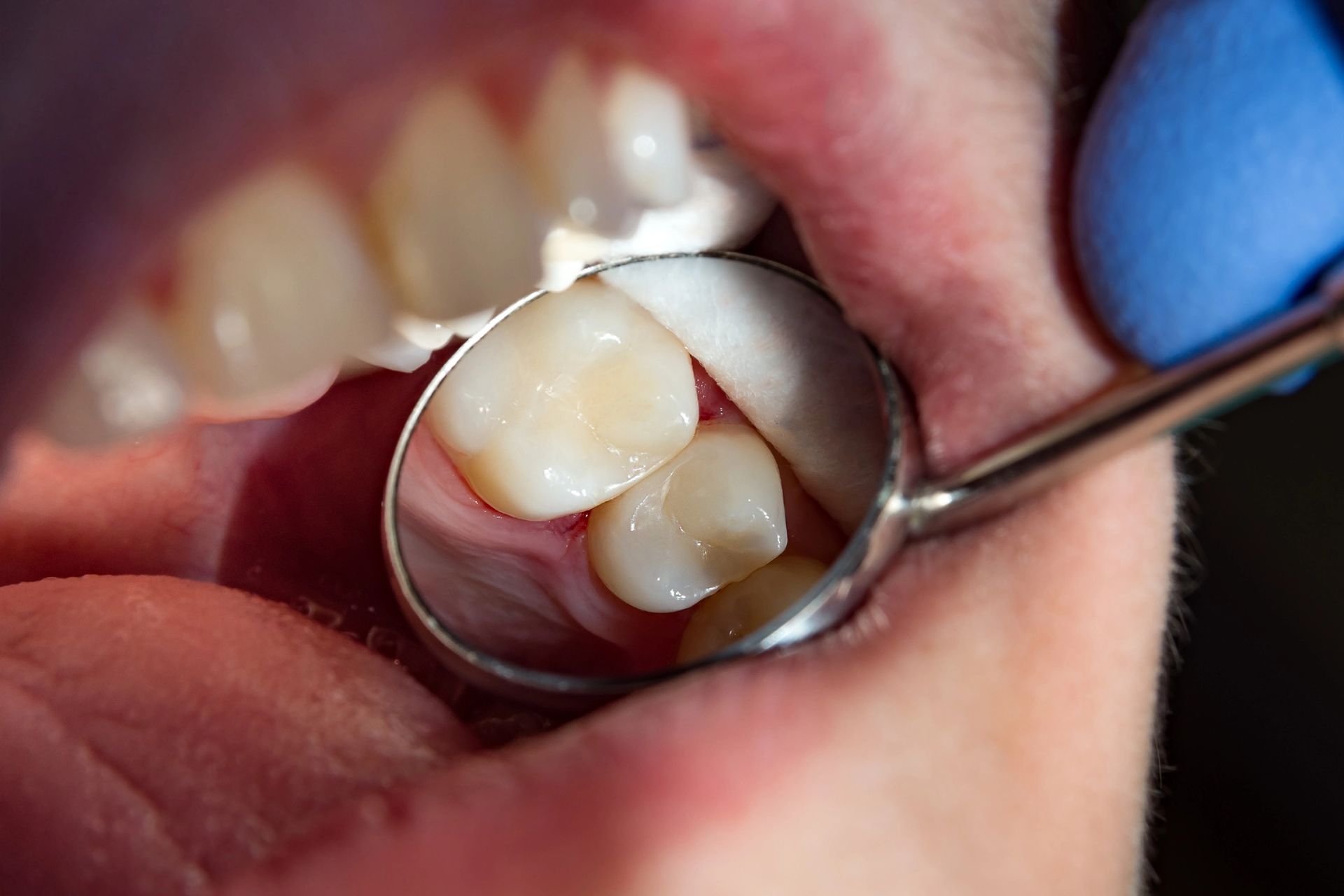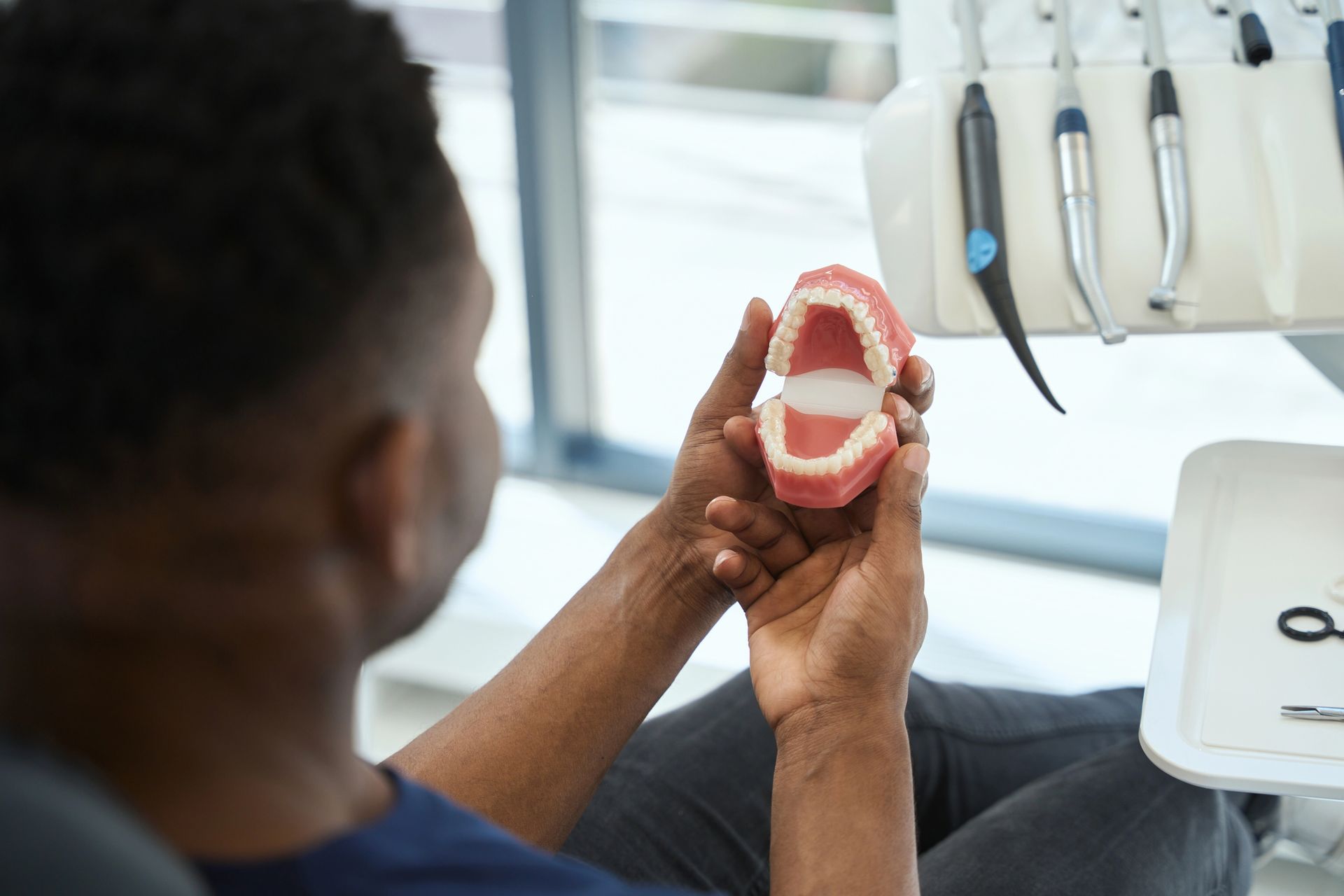
How Long Do Zirconia Crowns Last?
Zirconia crowns are renowned for their durability and strength, making them a popular choice for dental restorations. On average, zirconia crowns can last anywhere from 10 to 15 years, depending on various factors such as oral hygiene practices and the individual's lifestyle. The robust nature of zirconia material contributes to its longevity, providing a reliable solution for those seeking long-term dental restoration options. Understanding how long do zirconia crowns last can help individuals set realistic expectations for their dental care. While zirconia crowns are designed to withstand the pressures of daily use, their lifespan can be influenced by several factors, including the patient's oral habits and overall dental health. Regular dental check-ups and maintaining good oral hygiene can play a significant role in extending the life of these crowns. If you ever find yourself in a situation where your crown becomes dislodged, you might find it helpful to read more about what steps to take by visiting our page on Dental Crown Fell Off What to Do Next to Protect Your Tooth Factors affecting crown longevity The longevity of zirconia crowns can be influenced by several factors, which play a crucial role in determining how long do zirconia crowns last. One of the primary factors is the individual's oral hygiene practices. Regular brushing and flossing can help maintain the integrity of the crown by preventing plaque buildup and gum disease, which can compromise the crown's stability. Additionally, the skill and experience of the dental professional who places the crown can significantly impact its durability. A well-fitted crown is less likely to experience issues such as chipping or loosening over time. Another important factor is the patient's lifestyle habits. For instance, those who engage in teeth grinding or clenching may experience a shorter lifespan for their zirconia crowns due to the excessive pressure exerted on the dental work. Dietary choices also play a role; consuming hard or sticky foods can lead to wear and tear on the crown. Furthermore, regular dental check-ups are essential for monitoring the condition of the crown and addressing any potential issues early on. For those interested in exploring options for dental crowns, you can find more information about Affordable Dental Crowns Columbia by visiting our Affordable Dental Crowns Columbia page. Importance of Regular Dental Check-Ups Understanding how long do zirconia crowns last involves recognizing the crucial role of regular dental check-ups in maintaining their longevity. These appointments allow dental professionals to monitor the condition of your crowns, ensuring they remain in optimal shape and function. Regular check-ups can help identify any potential issues early, such as wear or damage, which might affect the lifespan of your zirconia crowns. By keeping up with these visits, you contribute to the overall health of your dental work and ensure that your zirconia crowns continue to serve you well over time.Role of Oral Hygiene Practices The longevity of zirconia crowns is significantly influenced by the role of oral hygiene practices. Maintaining a consistent and thorough oral care routine can help ensure that zirconia crowns last as long as possible. Regular brushing and flossing are essential to prevent plaque buildup, which can lead to gum disease and affect the stability of the crowns. Additionally, routine dental check-ups play a crucial role in monitoring the condition of the crowns and addressing any potential issues early on. Understanding how long do zirconia crowns last involves recognizing the impact of daily oral hygiene habits on their durability. For those in Columbia seeking more information, Design Dentistry Columbia offers insights into maintaining dental health, and you can learn more by visiting your local Columbia Dentist.
Impact of Dietary Habits
Dietary habits can significantly influence how long zirconia crowns last. Consuming a diet high in sugary foods and acidic beverages may contribute to the wear and tear of dental restorations, including zirconia crowns. These dietary choices can lead to an increased risk of decay around the crown margins, potentially compromising their longevity. On the other hand, a balanced diet that supports overall oral health can help maintain the integrity of zirconia crowns over time. Understanding the relationship between diet and dental health is essential for those looking to maximize the lifespan of their zirconia crowns.Influence of Teeth Grinding
Teeth grinding, also known as bruxism, can significantly impact how long zirconia crowns last. This involuntary habit exerts excessive pressure on dental restorations, including zirconia crowns, potentially leading to premature wear or damage. While zirconia is renowned for its durability and strength, the constant grinding motion can compromise its longevity over time. Understanding the effects of teeth grinding is crucial when considering how long zirconia crowns last, as it highlights the importance of addressing underlying dental habits that may affect their lifespan.Professional Cleaning Frequency
Understanding the professional cleaning frequency is essential when considering how long do zirconia crowns last. Regular dental check-ups play a crucial role in maintaining the longevity of zirconia crowns. During these visits, dental professionals can assess the condition of the crowns and perform necessary cleanings to prevent plaque buildup and other potential issues. While the specific frequency of professional cleanings may vary based on individual needs, maintaining a consistent schedule with your dentist ensures that zirconia crowns remain in optimal condition, contributing to their durability and lifespan.Signs of Crown Wear and Tear
Understanding the signs of wear and tear on zirconia crowns is essential for anyone curious about how long do zirconia crowns last. Over time, you might notice subtle changes such as slight discoloration or a dulling of the crown's surface, which can indicate natural aging. Additionally, small chips or cracks may appear, especially if the crown has been exposed to excessive force or grinding. These signs can serve as indicators that the crown is experiencing normal wear, which is a factor in determining its longevity. Regular dental check-ups can help monitor these changes and assess the overall condition of your zirconia crowns.htmlWhen to Consult a Dentist
Understanding how long do zirconia crowns last is essential for maintaining optimal oral health. While zirconia crowns are known for their durability and longevity, regular dental check-ups are crucial to ensure they remain in good condition. If you notice any discomfort, changes in bite, or visible damage to your crown, it may be time to consult a dentist. Regular professional evaluations can help identify potential issues early, ensuring that your zirconia crowns continue to function effectively and maintain their aesthetic appeal over time.Conclusion
Understanding how long do zirconia crowns last is essential for maintaining a healthy smile. For more information, call 803-408-7163 or [read reviews on Google Maps](https://maps.app.goo.gl/Mn6Pt8Sw7v1e67Za8).

Are you experiencing veneer tooth pain and wondering what might be causing it? Veneer tooth pain can arise from several common issues, such as improper fit or underlying dental problems, and understanding these causes can help in finding effective solutions to alleviate the discomfort.
Veneer Tooth Pain
Veneer tooth pain can often be traced back to the purpose and functionality of dental veneers themselves. Veneers are thin shells designed to cover the front surface of teeth, primarily for aesthetic enhancement. They improve the appearance of teeth by altering their color, shape, size, or length. However, the process of applying veneers involves removing a small amount of enamel from the tooth's surface, which can sometimes lead to sensitivity or discomfort. This structural alteration is a common reason why some individuals experience veneer tooth pain after the procedure.
Understanding the functionality of veneers is crucial in addressing veneer tooth pain. Veneers provide a durable and long-lasting solution for various dental imperfections, but the initial adjustment period may involve some discomfort as the mouth adapts to the new additions. It's important to consider all aspects, including potential costs, when deciding on veneers. For more information, explore Cost of Dental Veneers: What You Need to Know for Your Smile. This understanding helps recognize that while veneers offer significant cosmetic benefits, they may also require an adaptation period that could involve some level of pain or sensitivity.
Material Differences
When it comes to veneer tooth pain, the material used in the veneers can play a significant role. Veneers are typically made from either porcelain or composite resin, and each material has its own characteristics that can affect comfort levels. Porcelain veneers are known for their durability and natural appearance, but they can sometimes cause discomfort if not fitted properly. On the other hand, composite resin veneers are more affordable and easier to apply, but they may not offer the same level of comfort or longevity as porcelain.
Understanding these material differences can help explain why some individuals experience veneer tooth pain while others do not. The choice between porcelain and composite resin can impact not only the aesthetic outcome but also the overall experience of wearing veneers. For more insights, visit Veneers Columbia to learn more about material differences and their impact on your dental health.
Cost Comparison
When dealing with veneer tooth pain, understanding the cost implications of various solutions is important. Expenses associated with addressing veneer tooth pain can vary significantly depending on the underlying cause and the chosen treatment. For instance, if the pain is due to improper fitting, adjustments might be necessary, which could incur additional costs. Alternatively, if the pain stems from issues like tooth decay or gum disease, more extensive dental work may be required, potentially leading to higher expenses.
Durability and Longevity
When considering the causes of veneer tooth pain, it's essential to understand the role of durability and longevity in dental veneers. Veneers are designed to be long-lasting, but their lifespan can be influenced by the quality of materials used and individual oral hygiene practices. Over time, wear and tear or improper care can lead to issues contributing to discomfort or pain. Veneers, while durable, are not immune to damage or degradation, which can sometimes result in veneer tooth pain. For those in Columbia, Design Dentistry Columbia offers insights into maintaining dental health and ensuring veneer longevity.
Aesthetic Considerations
Veneers are designed to enhance the appearance of teeth, providing a more uniform and appealing smile. However, achieving aesthetic perfection can sometimes lead to discomfort or sensitivity due to the alterations made to the natural tooth structure. This pursuit of an ideal smile often requires balancing cosmetic enhancement with maintaining oral health, which can sometimes result in temporary veneer tooth pain. Understanding the aesthetic goals behind veneers can help contextualize why some individuals might experience discomfort during or after the procedure.
Procedure and Time Involved
When addressing veneer tooth pain, understanding the procedure and time involved is crucial. Resolving veneer tooth pain typically starts with a comprehensive dental examination to identify the underlying causes. This may involve checking the fit and placement of the veneers, as well as assessing any potential issues with the natural teeth or gums. Depending on the findings, adjustments to the veneers or other dental treatments may be needed. The time required to resolve veneer tooth pain can vary from a single appointment to multiple visits, depending on the complexity of the problem.
Maintenance and Care
Proper maintenance and care are essential in minimizing veneer tooth pain and ensuring the longevity of your veneers. Regular oral hygiene practices, such as brushing and flossing, help prevent issues that may lead to discomfort. Additionally, being mindful of your dietary choices and avoiding harmful habits can help maintain the integrity of your veneers, reducing the risk of veneer tooth pain. By prioritizing these general care practices, you can contribute to the overall health of your veneers and potentially alleviate associated discomfort.
Suitability for Dental Issues
Veneer tooth pain can arise from various dental issues, making it essential to evaluate its suitability for different conditions. Veneers are a popular choice for cosmetic enhancement, but they may not be ideal for everyone, especially if underlying dental problems exist. Conditions such as tooth decay, gum disease, or significant misalignment can contribute to veneer tooth pain, as these issues affect the fit and comfort of the veneers. Addressing these underlying issues is key to achieving a comfortable and lasting dental solution.
Impact on Natural Teeth
Veneer tooth pain can sometimes be linked to the impact on natural teeth. The process of applying veneers involves altering the tooth's surface, which can occasionally lead to increased sensitivity or discomfort. The bonding process, while generally safe, may sometimes cause irritation to the gums or surrounding teeth, contributing to veneer tooth pain. Understanding how veneers interact with natural teeth is crucial in identifying potential sources of discomfort and ensuring that any issues are addressed promptly.
Conclusion
If you're experiencing veneer tooth pain, don't hesitate to reach out for more information by calling 803-408-7163 or checking out our Google Maps reviews.







